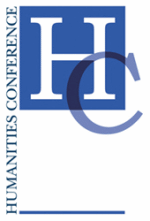Plenary Speakers
The International Conference on New Directions in the Humanities will feature plenary sessions by some of the world’s leading thinkers and innovators in the field, as well as numerous parallel presentations by researchers and practitioners.
| Alison Assiter | Roberto Feltrero |
| José Francisco Álvarez | Antonio Diéguez Lucena |
| MariaCaterina La Barbera | Sacramento Jáimez Muñoz |
| Suzanne Choo | José Luis González Quirós |
Garden Conversations
Plenary Speakers will make formal 30-minute presentations. They will also participate in 60-minute Garden Conversations – unstructured sessions that allow delegates a chance to meet the speakers and talk with them informally about the issues arising from their presentation.
Please return to this page for regular updates.
Local Organizing Committee
Prof. José Antonio Naranjo, Dean of the Faculty of Education, Universidad de Granada, Granada, Spain
Prof. Miguel Pereyra, Universidad de Granada, Granada, Spain
Prof. José Luis Ortega Martín, Universidad de Granada, Granada, Spain
The Speakers
- Alison Assiter
-
 Alison Assiter is Professor of Feminist Theory at the University of the West of England, Bristol. She teaches philosophy there on all levels of the programme, from level one through to MA. Specifically she teaches Descartes, Kant and Kierkegaard. She was previously Dean of Economics and Social Science and also Assistant Vice Chancellor there.
Alison Assiter is Professor of Feminist Theory at the University of the West of England, Bristol. She teaches philosophy there on all levels of the programme, from level one through to MA. Specifically she teaches Descartes, Kant and Kierkegaard. She was previously Dean of Economics and Social Science and also Assistant Vice Chancellor there.
Her publications include: Althusser and Feminism, Pluto Press, 1990, Enlightened Women, Routledge, 1996 and Kierkegaard, Metaphysics and Political Theory, Continuum, 2009. She is at present very interested in the work of Kierkegaard as a philosopher.
- José Francisco Álvarez
-
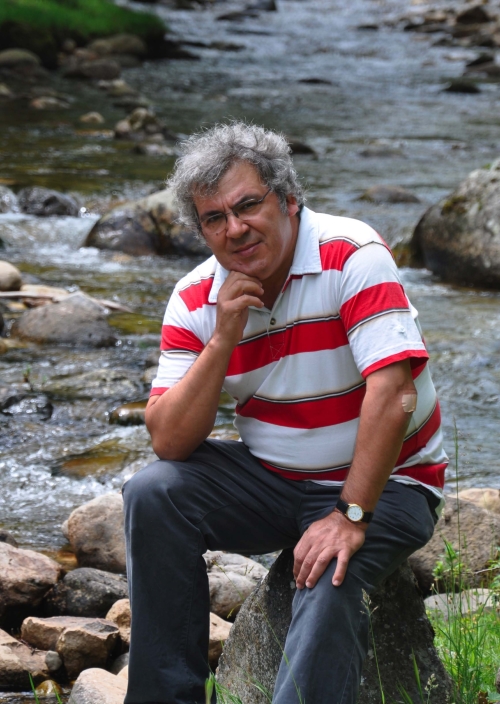 José Francisco Álvarez (1950) is Full Professor of Logic and Philosophy of Science at the National Distance University of Spain (UNED), Madrid. He was Research Fellow at Darwin College, Cambridge, and Vice Chancellor at UNED. His research subjects include Philosophy of the Social Sciences, Bounded Rationality, Social Networks and Philosophy of Technology. Some of his publications include: The Fabric of Bounded and Expresive Rationality; Responsability, Trust and Human Models; Bounded Rationality in Dialogic Interactions; Rational Choice and Bounded Rationality; Cibercitizenship, Culture and Public Goods (Arbor 2009). Additionally, with Javier Echeverría he has published “Bounded Rationality in Social Sciences” (Poznan Studies, 2008) and Languages in Knowledge Society (Arbor, 2008).
José Francisco Álvarez (1950) is Full Professor of Logic and Philosophy of Science at the National Distance University of Spain (UNED), Madrid. He was Research Fellow at Darwin College, Cambridge, and Vice Chancellor at UNED. His research subjects include Philosophy of the Social Sciences, Bounded Rationality, Social Networks and Philosophy of Technology. Some of his publications include: The Fabric of Bounded and Expresive Rationality; Responsability, Trust and Human Models; Bounded Rationality in Dialogic Interactions; Rational Choice and Bounded Rationality; Cibercitizenship, Culture and Public Goods (Arbor 2009). Additionally, with Javier Echeverría he has published “Bounded Rationality in Social Sciences” (Poznan Studies, 2008) and Languages in Knowledge Society (Arbor, 2008).
- MariaCaterina La Barbera
-
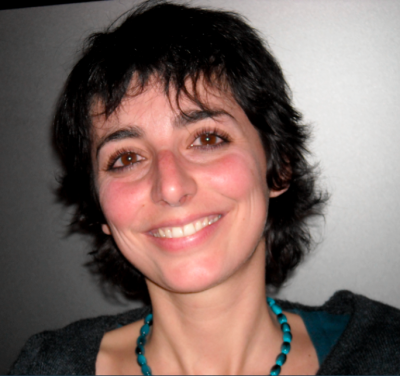 MariaCaterina La Barbera is an attorney at law and PhD in Human Rights from the University of Palermo, Italy. She is currently living in Madrid, Spain where she works as Research Fellow at the Center for Political and Constitutional Studies and as an Affiliated Researcher at the Center for Human and Social Sciences of the Spanish National Research Council (CSIC). She is a specialist in gender and feminist studies, and adopts an interdisciplinary approach that combines legal-political studies with socio-legal anthropology. Her research interests include Feminist Theory, Intersectionality, Equality, Difference, Identity, Discrimination, Human Rights, Immigration Law, Philosophy of Law, International Migration, Cultural Anthropology and Anthropology of Law.
MariaCaterina La Barbera is an attorney at law and PhD in Human Rights from the University of Palermo, Italy. She is currently living in Madrid, Spain where she works as Research Fellow at the Center for Political and Constitutional Studies and as an Affiliated Researcher at the Center for Human and Social Sciences of the Spanish National Research Council (CSIC). She is a specialist in gender and feminist studies, and adopts an interdisciplinary approach that combines legal-political studies with socio-legal anthropology. Her research interests include Feminist Theory, Intersectionality, Equality, Difference, Identity, Discrimination, Human Rights, Immigration Law, Philosophy of Law, International Migration, Cultural Anthropology and Anthropology of Law.
In her lectures and publications, MariaCaterina La Barbera (1) has analyzed the division between public and private in political theory; (2) proposed the notion of “multicentered feminism” as conceptual framework for understanding the location of women within the multiple systems of subordination; (3) developed the concept of “intersectional-gender” as a discursive strategy to highlight that gender inter- and intra-act along with all the other factors of social identification and discrimination differentiating and transforming identities women; and (4) applied the theoretical tools developed in previous works to the case study of “female genital mutilation” in Western countries from a socio-legal, anthropological and comparative law perspective.
She holds grants from the Spanish National Science Ministry and the Spanish Women’s Institute to research the process of identity negotiation during migration, in particular the transformation of gender identity of women in transit. Adopting the intersectionality approach, she is analyzing how the legislation on gender equality and migration shape the lives of migrant women in Spain.
- Suzanne Choo
-
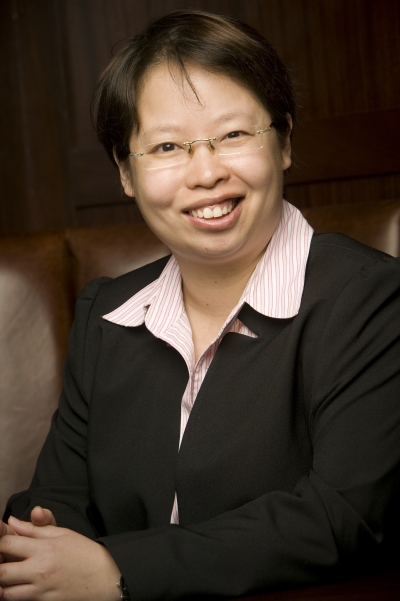 Suzanne Choo is an instructor at Teachers College, Columbia University where she teaches classes on Transnational Literature and Creativity in Education. She earned her MA in English Studies at the National University of Singapore and her MPhil at Columbia University. She is currently completing her PhD in English Education at Columbia University. Previously, she lectured in the teaching of English Literature at the National Institute of Education, Nanyang Technological University, Singapore where she was awarded the Overseas Graduate Scholarship in 2008. In the following year, she was a recipient of the Education Pioneers Fellowship, New York. In 2010, she co-founded Studies in Educational Innovation at Teachers College, Columbia University which conducts research on international education for the twenty-first century and subsequently co-organized a conference at the college entitled Creativity, Play, and the Imagination across the Disciplines in conjunction with Game Show NYC. Her interests are in multimodality, literature education, aesthetics and ethics, global and cosmopolitan citizenship and she has worked as a consultant to school districts and organizations in New York City. Her research has been published in various peer-reviewed journals such as English Journal, the Journal of Teaching & Learning, the High School Journal, the International Journal of the Humanities, and the Journal of Curriculum Studies. She also co-wrote the book Reel World Learning: Integrating Media in the English Classroom in 2007. In 2011, she was honored the International Award for Excellence for her paper “Cultivating moral sensibilities through aesthetic education” which was published in the International Journal of the Humanities. During this same year, she was also awarded the Walter Sindlinger Writing Award from Teachers College, Columbia University based on an exceptional research paper selected by a review committee nominated by the Office of the Provost.
Suzanne Choo is an instructor at Teachers College, Columbia University where she teaches classes on Transnational Literature and Creativity in Education. She earned her MA in English Studies at the National University of Singapore and her MPhil at Columbia University. She is currently completing her PhD in English Education at Columbia University. Previously, she lectured in the teaching of English Literature at the National Institute of Education, Nanyang Technological University, Singapore where she was awarded the Overseas Graduate Scholarship in 2008. In the following year, she was a recipient of the Education Pioneers Fellowship, New York. In 2010, she co-founded Studies in Educational Innovation at Teachers College, Columbia University which conducts research on international education for the twenty-first century and subsequently co-organized a conference at the college entitled Creativity, Play, and the Imagination across the Disciplines in conjunction with Game Show NYC. Her interests are in multimodality, literature education, aesthetics and ethics, global and cosmopolitan citizenship and she has worked as a consultant to school districts and organizations in New York City. Her research has been published in various peer-reviewed journals such as English Journal, the Journal of Teaching & Learning, the High School Journal, the International Journal of the Humanities, and the Journal of Curriculum Studies. She also co-wrote the book Reel World Learning: Integrating Media in the English Classroom in 2007. In 2011, she was honored the International Award for Excellence for her paper “Cultivating moral sensibilities through aesthetic education” which was published in the International Journal of the Humanities. During this same year, she was also awarded the Walter Sindlinger Writing Award from Teachers College, Columbia University based on an exceptional research paper selected by a review committee nominated by the Office of the Provost.
- Roberto Feltrero
-
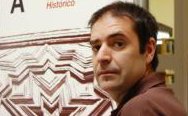 Lecturer in the Department of Logic, History and Philosophy of Science at the Universidad Nacional de Educación a Distancia (Spanish Open University). His research interests include Cognitive Technologies, Epistemology and Technology, User Interface Design and Evaluation, Ethics and Computing, Philosophy and Free software. He has published articles on Open Access, Open Peer Review and the philosophy of “Intellectual Property”. He is also the author of books like El Software Libre y la construcción ética de la Sociedad del Conocimiento, (2007, Barcelona: Icaria)
Lecturer in the Department of Logic, History and Philosophy of Science at the Universidad Nacional de Educación a Distancia (Spanish Open University). His research interests include Cognitive Technologies, Epistemology and Technology, User Interface Design and Evaluation, Ethics and Computing, Philosophy and Free software. He has published articles on Open Access, Open Peer Review and the philosophy of “Intellectual Property”. He is also the author of books like El Software Libre y la construcción ética de la Sociedad del Conocimiento, (2007, Barcelona: Icaria)
- Antonio Diéguez Lucena
-
 Antonio Diéguez is professor of Logic and Philosophy of Science at the University of Málaga, Spain. He was acting Dean and Vice-dean (1997-2002) of Coordination, of the Faculty of Philosophy and Humanities at the University of Málaga. He has been a visiting scholar at the University of Helsinki and at Harvard University.
Antonio Diéguez is professor of Logic and Philosophy of Science at the University of Málaga, Spain. He was acting Dean and Vice-dean (1997-2002) of Coordination, of the Faculty of Philosophy and Humanities at the University of Málaga. He has been a visiting scholar at the University of Helsinki and at Harvard University.
His main research interest has been the contemporary debate about scientific realism. On this issue he has published a book –Realismo científico (Scientific Realism) (1998)– and more than fifteen papers. In these works he has defended a moderate scientific realism. He has also published several papers and two books as a co-author on the difficulties to get a control of our modern technology.
Some years ago, he changed his research interests to the field of Philosophy of Biology, working especially on the evolutionary explanation of the mind and its philosophical implications (evolutionary epistemology). He has just published a book on this topic, etitled La evolución del conocimiento: De la mente animal a la mente humana (The evolution of Knowledge: From Animal Mind to Human Mind) (2011).
He is also author of two other books on Philosophy of Science: La teoría de las ciencias morales en John Stuart Mill (John Stuart Mill’s Theory of Moral Sciences) (1988), and Filosofía de la ciencia (Philosophy of Science) (2005); and co-author of a book on contemporary philosophy. At the present time he’s working on an introductory book to the philosophy of biology.
- Sacramento Jáimez Muñoz
- Sacramento Jáimez Muñoz, teacher of English in Secondary Education on condition of Professor in the IES “Francisco Ayala” of Granada, holds a doctor’s degree in English Philology in the speciality of Applied Linguistics. She was in charge of the Plurilingual Promotion Plan in the province of Granada from 2005 to 2009. Currently, she is the head of the Educative Organization Service in the Provincial Delegation of the Regional Ministry of Education, coordinating, among many other plans and programmes, the Promotion Plan of Plurilingualism, European Educative Programmes, In-service teacher training or school counselling programmes. Her principal interests are plurilingual and bilingual education, intercultural competence, CLIL and the integrated curriculum of languages, the competences and skills of the good teacher and permanent training, as well as the integration of literature in the education of languages, which was also the topic of her Doctoral Thesis, for which she received the second national prize of educational research in 2004.
- José Luis González Quirós
-
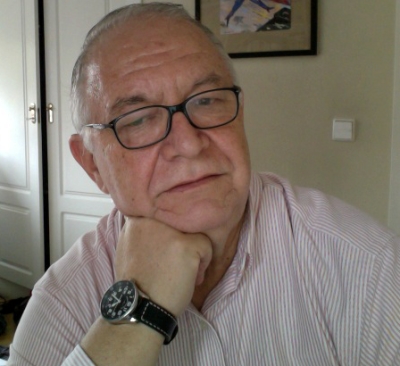 José Luis González Quirós is Tenured Professor at Rey Juan Carlos University, Madrid. He worked as a Philosophy professor at Universidad Complutense and also as Vice Director of their summer courses. He taught courses and seminars at the University of Wyoming, USA, Loyola University, USA, the University of Veracruz, the University of Mexico, and Lund University, Sweden. He held the positions of Director of Research at the Official Institute of Radio and Television and Secretary General at Fundesco (a Telefónica´s Foundation). He was a researcher at the Institute of Philosophy of the Consejo Superior de Investigación Científica (CSIC, Madrid). He is also a member of the editorial staff at the journals Revista de Libros, Nueva Revista, and Revista Hispano Cubana, and he is the founder and first director of the journal Cuadernos de pensamiento político. He is the author or co-author of eighteen books, including Mente y cerebro, El porvenir de la razón en la era digital, Una apología del patriotismo, Repensar la cultura, El templo del saber (Spanish and English editions), as well as many articles. His research interests include a variety of topics including Philosophy of Mind, Philosophy of Medicine, Political Philosophy and Cultural Theory, as well as matters related to the creation and social assimilation of the technological revolution.
José Luis González Quirós is Tenured Professor at Rey Juan Carlos University, Madrid. He worked as a Philosophy professor at Universidad Complutense and also as Vice Director of their summer courses. He taught courses and seminars at the University of Wyoming, USA, Loyola University, USA, the University of Veracruz, the University of Mexico, and Lund University, Sweden. He held the positions of Director of Research at the Official Institute of Radio and Television and Secretary General at Fundesco (a Telefónica´s Foundation). He was a researcher at the Institute of Philosophy of the Consejo Superior de Investigación Científica (CSIC, Madrid). He is also a member of the editorial staff at the journals Revista de Libros, Nueva Revista, and Revista Hispano Cubana, and he is the founder and first director of the journal Cuadernos de pensamiento político. He is the author or co-author of eighteen books, including Mente y cerebro, El porvenir de la razón en la era digital, Una apología del patriotismo, Repensar la cultura, El templo del saber (Spanish and English editions), as well as many articles. His research interests include a variety of topics including Philosophy of Mind, Philosophy of Medicine, Political Philosophy and Cultural Theory, as well as matters related to the creation and social assimilation of the technological revolution.
![[rss]](../wp-content/themes/k2_1.0.3/images/feed.png)




